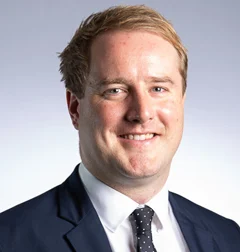
Football, sporting injuries & claiming for compensation through your superannuation’s TPD insurance cover
Published on August 16, 2023 by Matthew Forshaw
Rugby League immortal Wally Lewis has recently revealed that he has been diagnosed with probable Chronic Traumatic Encephalopathy (CTE), which, according to Dementia Australia, is a form of dementia that comes after repeated concussions or head injuries[1]. Mr Lewis, famously known as the “King”, played in excess of 300 first grade rugby league games in the QRL and ARL, whilst representing Queensland and Australia on 38 and 34 occasions respectively. He is widely considered one of the greatest rugby league players of all time and is now facing the prospect of living out his life with a debilitating illness.
In a fortnight in which young Hawthorn ruckman Max Lynch has had to retire at the age of 24 due to the symptoms arising from repeated concussions[2], controversy has arisen across the AFL following a huge head clash between Port Adelaide’s Allir Allir and Lachie Jones[3] and Sydney Swans star Paddy McCartin remains out indefinitely amid ongoing concussion symptoms[4], it is important to consider the potential affects of CTE and other major injuries not only for professional athletes but amateur sports men and women around the country.
Should any of these professional or amateur athletes suffer injury on the playing field and be rendered unable to work into the future, it is of great concern as to how they will be able to provide for themselves or their family.
Unfortunately, injuries and concussions are a significant risk in playing sport and, given that it is estimated that 16 million Australians participate in sport annually, this constitutes a risk to the majority of the population.
In those circumstances it is important for individuals to consider, when signing up to sporting endeavours, whether or not they are properly insured.
Eligibility for total and permanent disablement insurance and/or income protection insurance
Within your superannuation you are eligible to apply for total and permanent disablement insurance and/or income protection insurance. Both are designed to step in when injured persons are unable to work, the former when the incapacity is permanent and the latter generally in less permanent circumstances. These insurances are not restricted to sporting injuries, however.
TPD insurance is a type of life insurance which pays a specified lump sum in the event that an insured person is found to have total and permanent disability as a result of injury or illness they have incurred.
The value, eligibility criteria and evidentiary requirements differ depending on the policy held by an individual and the conditions imposed.
For example, under some policies it is the case an insured person does not have to be unfit for all work but rather cannot work in their career at the time of the accident given their education, training or experience. Under some other policies the insured person may need to be assessed as unfit for any work, not just the work they were educated and trained for.
TPD policies may also require a test of an insured’s ability to perform activities of daily living.
It is critical to understand the wording of the individual policy and the benefits provided under that policy before making a claim.
Many people are unaware that they may already have TPD cover which is often included in superannuation policies and/or other insurances that are commonly held. There are various ways that you may be entitled to TPD benefits, however it is most commonly through superannuation held by the insured person.
To determine whether you have TPD coverage through your superannuation, it is recommended you carefully peruse your most recent member’s statement or contact your Fund.
Given his age, Wally Lewis is unlikely to experience the benefits associated with either TPD or income protection insurance, but Max Lynch and a host of other people across the country may.
If you believe you or a loved one may be entitled to a total and permanent disablement (TPD) benefit – and you’ve suffered an illness or injury – or for more information, we suggest that you contact Carroll & O’Dea Lawyers via our Contact Page or call us on 1800 059 278 in order to investigate any potential rights through this insurance cover.
